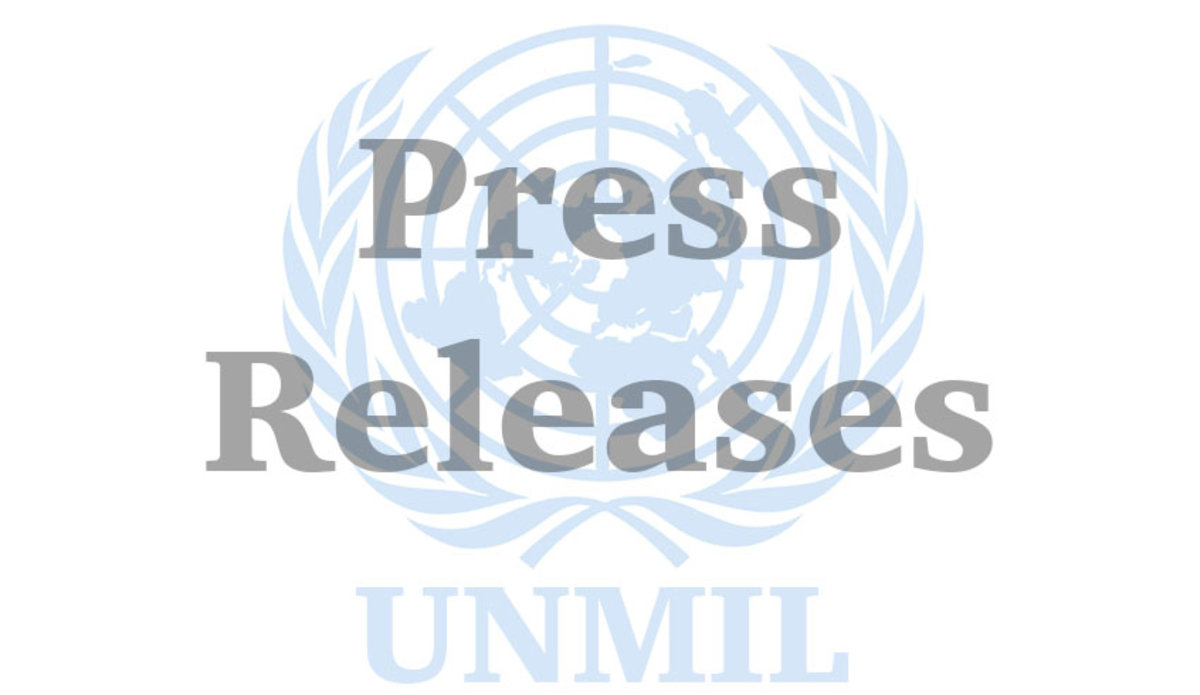Dubai, 17 January 2016: The United Nations Secretary-General Ban Ki-moon today thanked his High-Level Panel on Humanitarian Financing when he received its report on finding solutions to the growing gap between the increasing numbers of people in need of assistance and sufficient resources to provide relief.
At a launch event for the report, “Too important to fail – addressing the humanitarian financing gap”, the Secretary-General met with the panellists to thank them for their work and to discuss their recommendations to tackle the estimated US$15 billion shortfall in funding.
”In May last year I asked the panel to identify ways in which the gap between rising needs and the resources available to meet them can be closed," he said. "I also requested them to work on generating solutions around the issues of more timely and predictable funding, as well as ways in which resources can be used more effectively.
“Since they began their work the needs created by the demand for humanitarian aid have continued to rise dramatically. We are living in the age of the mega-crises. But, as this report clearly demonstrates, the gap in funding is a solvable problem.
“As the report’s title indicates, we simply cannot fail. We need fresh thinking and the determination to take bold decisions. I believe the panel has seized this opportunity and delivered. I want to thank them for this important contribution to shaping the priorities for the World Humanitarian Summit (WHS) in Istanbul in May.
“In a few weeks I will publish my report and vision for the future humanitarian agenda. I will build on the excellent report launched today to shape this important thinking.”
The report focuses on three areas to address the funding gap: shrinking the needs, growing the resource base for funding and improving efficiency through a Grand Bargain between key humanitarian partners.
Among its recommendations are:
- Reclassify the eligibility criteria of the World Bank’s International Development Association (IDA), so that funding follows people in need and not countries, to enlarge opportunities to MICs.
- Far higher proportion of official development assistance should be directed to situations of fragility and protracted emergencies, oriented towards building resilience and reducing fragility.
- Triple the IDA’s Crisis Response Window and expand funding capacity for emergencies in other development finance institutions.
- Governments should voluntarily sign up to a “solidarity levy” mechanism at the WHS to fund humanitarian aid.
- Channel Islamic social finance and other instruments to humanitarian causes.
- Donors and aid organisations to commit jointly to change their working practices in a Grand Bargain.
The panel conducted hundreds of interviews with all parts of the humanitarian ecosystem, including meetings with affected people in ongoing crises.
“Our starting point was the stark facts and figures: 125 million people in need; a record US$25 billion a year going to aid them; but, in spite of that, the needs continuing to outpace resources,” said the report’s Co-Chairs, Kristalina Georgieva and Sultan Nazrin Shah of Perak, Malaysia.
“A gap of US$15 billion is a lot of money but in a world producing US$78 trillion of GDP it should not be out of reach to find. Closing the gap would mean nobody having to die or live without dignity for lack of money and a victory for humanity at a time when one is greatly needed.
“Our ambition for this report now is to carry it forward, so that by the WHS in Istanbul there will be significant engagement by the global humanitarian system for making the necessary changes which will ensure that the needs of vulnerable people can always be adequately met.”
The High-Level Panel is co-chaired by Kristalina Georgieva, Vice- President of the European Commission, (Bulgaria), and HRH Sultan Nazrin Shah, Ruler of Perak (Malaysia). The other panel members are: Hadeel Ibrahim (United Kingdom), Executive Director of the Mo Ibrahim Foundation; Badr Jafar (United Arab Emirates), Chief Executive of the Crescent Group; Walt Macnee (Canada), Vice-Chairman of MasterCard Worldwide; Trevor Manuel (South Africa), Senior Adviser to the Rothschild Group; Linah Mohohlo (Botswana), Governor of the Bank of Botswana; Dhananjayan Sriskandarajah (Sri Lanka), Secretary General of CIVICUS; Margot Wallström (Sweden),Minister for Foreign Affairs.
 UN
UN United Nations Peacekeeping
United Nations Peacekeeping





